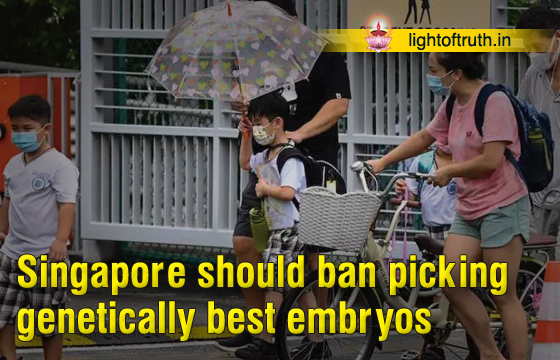Azadi ka Amrit Mahotsav Kolkata event honours four Clergymen
Pope Francis asks businesses to support working women: They’re ‘afraid to get pregnant’
Study: Christianity may lose majority, plurality status in U.S. by 2070
Indian politician declines Magsaysay Award under party pressure
Like John Paul II, Pope Francis heads to Kazakhstan during time of war

Genetic testing has recently attracted much interest in Singapore, with the Ministry of Health (MOH) issuing a public warning on the risks of consumer genetic testing, as well as announcing subsidies on IVF (in vitro fertilization) embryo genetic testing for some patients at risk of transmitting heritable genetic defects to their offspring.
In May 2021, the ministry placed a moratorium on genetic testing and insurance, which bans insurers from requiring their clients to provide predictive gene-tic test results for disease sus-ceptibility.
A more controversial development is the use of predictive genetic tests to select IVF embryos for good health and intelligence, in what is known as pre-implantation genetic testing for polygenic risks (PGT-P).
As good health and intelligence are complex traits deter-mined by the combination of multiple genes, polygenic risk scores (PRS) are used to estimate an individual embryo’s likelihood of developing an adult-onset, multi-factorial trait by analyzing the combination of specific gene-tic variants within its genome. The risk here is because there is no genetic modification, there are minimal risks involved, as it is basically a technique for picking the “winning ticket” in the “genetic lottery” for good health and intelligence.
It must however be noted that there is an important distinction between embryo testing and selection to avoid serious harm from known genetic defects and for so-called ‘enhancement’, like better health and greater intelligence.
Leave a Comment